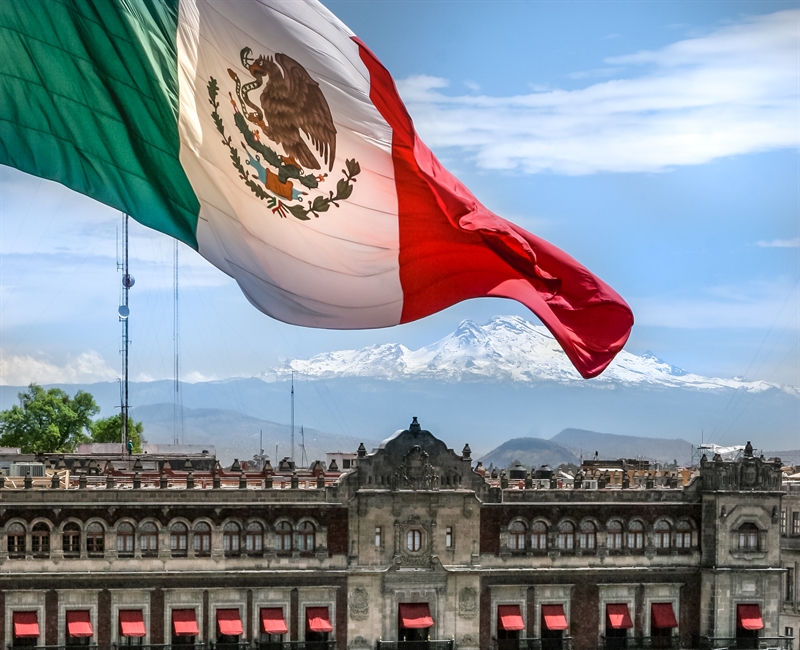What Every Multinational Company Should Know About … Nearshoring into Mexico: Key Considerations in Weighing the Pros and Cons

Mexico is a key player in both the United States-Mexico-Canada Agreement (USMCA) and Latin American regions. Nearshoring, the practice of relocating an operating business or supply chain closer to home markets, is a rapidly growing trend, particularly for international companies seeking alternatives to supply the U.S. market. While the opportunities are significant, there also are various challenges that companies must navigate to operate successfully in Mexico. Companies deciding whether to nearshore into Mexico must understand these potential risks — and how to mitigate them effectively — in order to maximize the opportunities gained from operating in the country.
Below we have highlighted key opportunities and challenges to consider when deciding whether to engage in operations in Mexico.
Opportunities
- Strategic Location: Mexico’s geographic proximity to the United States makes it an ideal location for nearshoring. Its shared border with the U.S. significantly reduces shipping times, lowers transportation costs, and makes inventory management more agile. With many companies now seeking to reduce their dependency on distant overseas suppliers, Mexico’s position as a neighbor to the U.S. market is a key advantage for industries that depend on quick turnaround times, such as automotive, electronics, and consumer goods.
- Large and Growing Market: With a population of over 130 million people, Mexico offers a large and relatively young consumer base with a growing middle class. This dynamic demographic makes Mexico an attractive market for a wide range of goods and services, particularly in industries like retail, telecommunications, and consumer products.
- Free Trade Agreements: Mexico has established a network of free trade agreements (FTAs) with numerous countries, including the European Union, those in the Trans-Pacific (CPTPP) region, Japan, Israel, and several Latin American nations. These agreements provide businesses with access to reduced tariffs and other preferential treatment measures, making it easier to trade products with these countries and within such regions. The USMCA in particular has nurtured strong regional supply chains through which inputs swiftly cross international borders multiple times before being exported as a finalized product.
- Robust Manufacturing Sector: Mexico’s manufacturing sector is well developed and mature, particularly in the automotive, electronics, and aerospace industries. The country offers a strong industrial base and high-quality production capabilities, supported by modern facilities and a cost-effective workforce.
- Lower Labor Costs: Labor costs in Mexico are significantly lower than in the U.S., making it an attractive option for manufacturers looking to cut costs while remaining close to their primary consumer markets. Even though labor rates in Mexico recently have been rising, there remains a significant gap with those in the U.S., giving businesses a competitive edge, particularly in industries that require high-volume, low-cost production. Mexico’s workforce is skilled and well educated, with an expanding pool of workers fluent in English, which facilitates communication with U.S.-based companies and enhances collaboration.
Challenges
- FCPA Risk: The U.S. Foreign Corrupt Practices Act (FCPA) is an important consideration for companies operating in Mexico. Corruption historically has been a concern, and businesses may encounter pressure to engage in bribery or unethical practices to navigate local bureaucracy, particularly with respect to procuring necessary permits, approvals, or licenses. Companies should ensure they have a robust compliance program that includes comprehensive anti-bribery policies, training, and internal controls designed to prevent and detect FCPA violations.
- Security Concerns: Businesses operating in areas affected by violence or extortion may face threats to their personnel, assets, or supply chains. Security costs, including the need for specialized security personnel, transportation services, or risk management solutions, can be significant.
- OFAC Compliance: The U.S. government’s Office of Foreign Assets Control (OFAC) has sanctioned various Mexican individuals, businesses, and entities with ties to illicit activities such as drug trafficking and money laundering, placing them on the Specially Designated Nationals and Blocked Persons list (SDN List). If a U.S. company fails to conduct adequate pre-transaction screening and inadvertently engages in business with an entity or individual on the SDN List, the company could face severe legal and financial penalties.
- Dependence on Certain Imported Inputs and Regulatory Environment: Mexico relies on certain imported inputs and sub-assemblies to be further processed in the country, and importation processes can be challenging due to intricate customs regulations and other compliance requirements. Companies need to navigate complex paperwork and potential delays, which can add to the cost and time of doing business. Understanding and complying with local regulations — ranging from product certifications to environmental and safety standards — is critical.
- Labor Issues: While companies benefit from relatively low labor costs in Mexico, businesses must understand and navigate Mexico’s labor laws and practices, which can be complex and subject to change. Workers’ rights, union influence, and wage regulations are important considerations when hiring and managing a workforce. Recent reforms to labor laws, for example, have increased the bargaining power of workers and unions, and companies must be prepared to act promptly to ensure compliance with the evolving labor regulations.
- Rule of Law: With recent constitutional amendments leading to a staggered replacement of a substantial portion of Mexico’s federal and local judges by means of public elections of candidates (some of whom may have little-to-no judicial experience), companies will need to rely increasingly on alternative dispute settlement mechanisms to resolve controversies with their business counter-parties and stakeholders.
- Possibility of a Trade War in the USMCA Region: The incoming U.S. administration has threatened to impose a 25% tariff on all Mexican and Canadian goods (coupled with an additional 10% on Chinese products), to which Mexico has responded by warning of retaliatory measures, yet encouraging dialogue. Given the popularity of the USMCA within the business community, there is hope that ongoing negotiations will result in a business-friendly compromise acceptable to all three countries. But if domestic political issues dominate these discussions, there is a potential for significant trade restrictions and, in turn, ramifications for businesses operating in all three USMCA countries[1].
Conclusion
Nearshoring into Mexico offers numerous advantages, particularly in terms of cost savings, logistical efficiency, and increased access to international markets. Mexico’s proximity to the U.S. and its skilled labor force makes it an attractive destination for businesses looking to reduce their dependence on distant global supply chains. In deciding to maximize these advantages, companies must also be mindful of the challenges associated with corruption, security, regulatory compliance, labor issues, and uncertainty in its judicial system and in the international trade landscape. However, with careful planning and risk management, nearshoring into Mexico is an increasingly popular choice for businesses looking to maintain competitive advantage in an evolving global market.
If you have any questions about nearshoring in Mexico, contact the authors of this article or your Foley & Lardner LLP attorney. If you would like to see future updates regarding “What Every Multinational Company Needs to Know” about operating in today’s complicated international trade world, please sign up for our biweekly email list. Click here to register.
To view all articles in our “What Every Multinational Company Needs to Know” series, click here.
[1] This standoff may very well be the signal to revise how a tariff increase would be borne in your (likely several) current Terms and Conditions.


